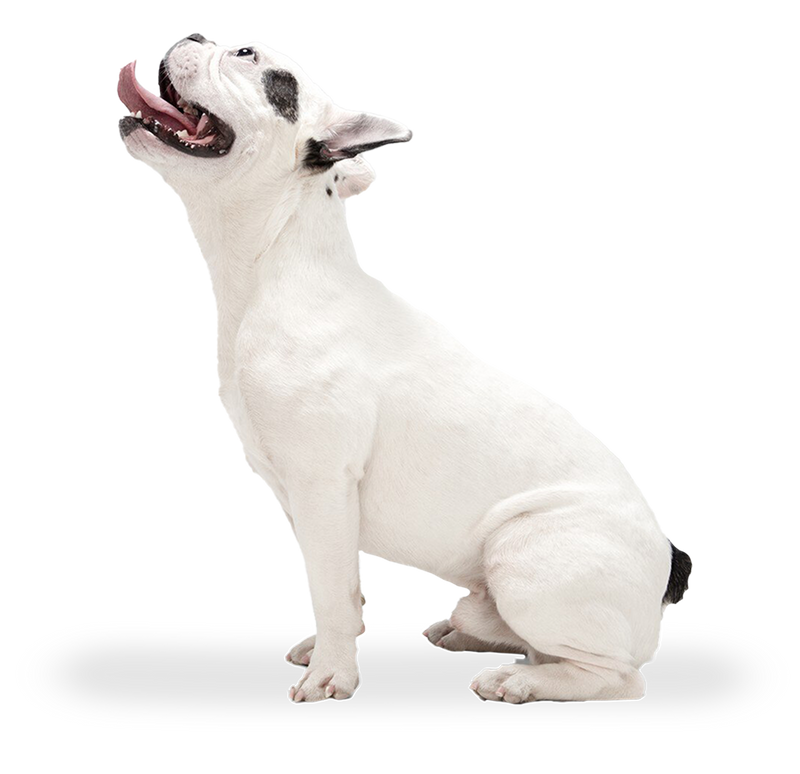Hello, pet parents!
We understand how much you love your pet and how seeing your little one stressed, in pain, or uncomfortable is one of the hardest things to watch. You are always looking for ways to ease pain and restore energy for a healthier life. Acupuncture therapy can help with joint pain, recovery after injuries, and even trauma. Many of you may not know that acupuncture is an option for pets, and you might wonder: Does acupuncture work for dogs? If so, how does this technique work? Choosing acupuncture for your pet can raise many questions, and we're here to make it simple and calm.
Below, we'll explore how acupuncture can help dogs, what to expect during a session, and how Pad Home Pet Services supports your pet's comfort at home.
What Is Veterinary Acupuncture and How Can Dogs Benefit From It?
Acupuncture is a technique that has been practiced for thousands of years in Chinese medicine to restore balance by unblocking Qi, the body's natural energy flow. It involves the use of tiny, sterile needles to relieve pain and stimulate healing. Today, veterinary acupuncture is often used alongside Western medicine and can support pets with conditions such as intervertebral disc disease, hip dysplasia, and kidney disease.
How Can Dogs Benefit from Acupuncture Therapy?
-
Helps relieve pain and support energy flow
-
Eases chronic discomfort
-
Improves mobility and flexibility
-
Supports healing after injury or surgery
-
Promotes calmness and relaxation
-
Stimulates the body's natural pain-relieving chemicals
-
Improve Digestive Issues
When Should Pet Parents Consider Acupuncture?
As a pet parent, you know when something feels off. If your dog:
-
Shows stiffness: This can be an early sign of joint pain and inflammation. Pet acupuncture may help improve mobility and ease discomfort.
-
Struggles with stairs: When climbing stairs becomes a challenge, it often means sore hips or back issues. Acupuncture can provide support by improving circulation and reducing discomfort.
-
Yelps from back pain: Hearing your dog cry out suddenly is heartbreaking. This can be linked to nerve or spine problems, and veterinary acupuncture is one way to bring them some relief.
-
Takes too long to recover after surgery: Recovery can sometimes feel slow. Acupuncture and other complementary treatments may help speed things up so your dog gets back to their playful self.
-
Loses interest in food: If your pup turns away from meals, it might be a sign of discomfort or digestive imbalance. Acupuncture to help with energy flow can sometimes spark their appetite again.
-
Has accidents: Accidents in the house can be stressful for both you and your dog. Sometimes it's linked to health issues that acupuncture can gently support.
-
Seems anxious and restless: Accidents in the house can be stressful for both you and your dog. Sometimes it's linked to health issues that acupuncture can gently support.
With acupuncture, you're not only treating pain – you're restoring comfort and helping your dog feel like themselves again.
Acupuncture works by easing pain, improving circulation, and calming the nervous system. Veterinary acupuncturists may also use electroacupuncture (gentle pulses to reduce nerve pain), aquapuncture (vitamin injections for longer-lasting effects), or laser acupuncture (a needle-free option for sensitive pets). Each method is chosen to address your dog's specific problem, with the goal of creating a more comfortable, balanced, and happy life.
Is Acupuncture Safe for Dogs?
When performed by a trained veterinary professional, acupuncture is generally very safe. The needles are extremely fine and sterile, so most dogs barely notice them. Many even relax during treatment, showing signs like a deep sigh, a yawn, or drifting off to sleep. The focus is always on comfort and calm, never on restraint or force.
Mild side effects can occur, such as brief soreness at the needle site, tiny bruises, or temporary sleepiness after a session. These effects are short-lived and resolve quickly on their own.
Extra caution is needed in certain cases. Acupuncture may not be suitable for pets with bleeding disorders, active skin infections at the needle site, or specific medical conditions where electroacupuncture is not recommended, such as pregnancy or the presence of a pacemaker.
Our skilled veterinary acupuncturist always pays close attention to your dog's body language. If something does not feel right, they will adjust or use alternatives like massage, acupressure, or laser therapy. At its core, acupuncture is about gentleness, trust, and healing on the dog's terms.
How Acupuncture Helps Solve These Problems?
Acupuncture is more than simply placing needles. It works by stimulating the nervous system, encouraging the release of natural pain-relieving chemicals such as endorphins, and improving blood flow to tissues that need healing. For many pets, this results in less pain, smoother movement, and improved energy levels.
To better support individual needs, veterinary acupuncturists may use different methods.
-
Electroacupuncture applies gentle electrical pulses through the needles to reduce nerve pain.
-
Aquapuncture involves injecting small amounts of fluid, such as vitamin B12, into acupuncture points to extend the effects.
-
For pets who are sensitive or dislike needles, laser acupuncture provides a gentle, needle-free alternative.
Each approach is carefully selected to address the specific issue your dog is experiencing. No matter the technique, the goal is always the same: to create a more comfortable, balanced, and happy life for your pet.
How Pad Provides Seamless In-Home Acupuncture Support
At Pad Home Pet Services, our skilled veterinary technicians understand that acupuncture works best in a calm and stress-free setting. That is why we bring expert care directly into your home, where your pet feels most relaxed and secure.
We create a quiet space, carefully monitor your dog's vitals and comfort, and ensure medications and treatments are given exactly as directed. After each session, our team observes how your pet responds by noting signs of relief, relaxation, or changes in mobility, and we share these updates with you and your veterinarian.
With our skilled veterinary technicians by your side, acupuncture becomes safe, gentle, and effective, helping your dog heal in familiar surroundings while giving you peace of mind.
Frequently Asked Questions (FAQs)
Q. Does acupuncture work for dogs?
A: Yes, it can. Many dogs feel better with acupuncture, especially if they have arthritis, back pain, or slow healing after an injury. Some dogs improve quickly, while others need a few sessions before you notice a change.
Q: How old does my dog need to be to receive acupuncture therapy?
A: There's no age requirement. Whether your dog is just starting out in life or enjoying their golden years, acupuncture may help if your vet recommends it. The treatment plan is always adjusted to the pet's size, age, and health.
Q: How do dogs react to needles?
A: Most dogs tolerate the fine, sterile needles very well. Many relax, sigh, or even nap during treatment. For pets who are sensitive, veterinarians may use fewer points, acupressure, or even laser acupuncture.
Q: How long does it take for acupuncture to work in dogs?
A: Some dogs respond after just one or two sessions. For most, changes are clearer after three to six visits. Your veterinarian will guide you based on your dog's condition.
Q: How can dog acupuncture be integrated with Western medicine?
A: Acupuncture works best as part of a complete care plan. It can be used alongside medications, surgery, physical therapy, or weight management to give your dog the best chance at healing and long-term comfort.


